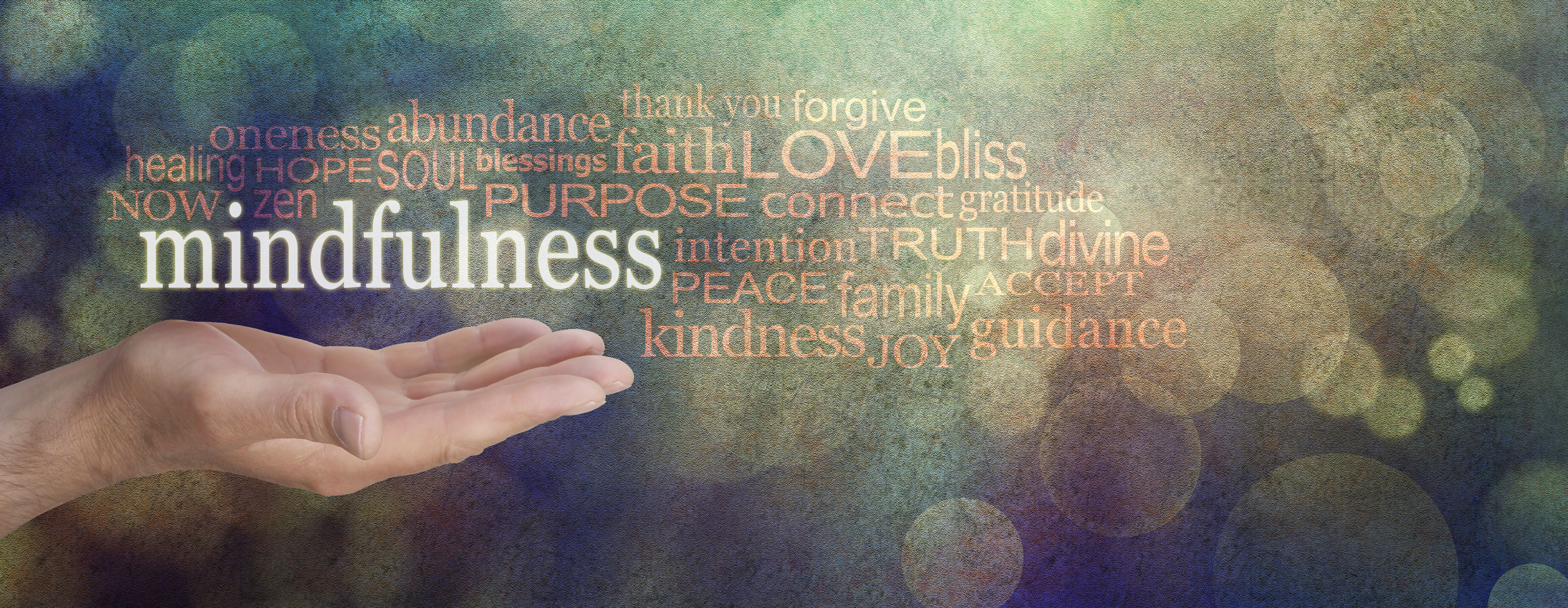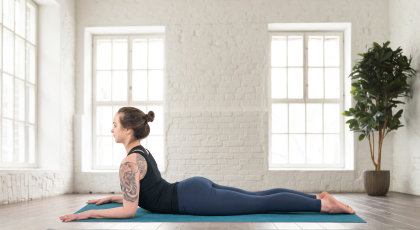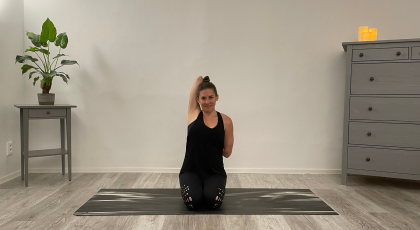View basket (0 items $0.00)
Error message
- Notice: unserialize(): Error at offset 5 of 154 bytes in variable_initialize() (line 1202 of /home/dh_6hcdc2/yogau.online/docroot/includes/bootstrap.inc).
- The file could not be created.
- The file could not be created.

Tame Your Mind: How to Be Mindful All the Time
I often get asked about how to remember to be mindful more of the time. How can we remember not only to be present more but to be compassionate, to drop into our bodies when we’re feeling difficult emotions, to have a beginner’s mind, to relax into the chaos of the moment? How can we be mindful a little more of the time?
I would challenge you to something higher: how can we be mindful all the time?
The answer is that we can’t. I don’t know anyone, even Zen priests, who are mindful all the time. But that shouldn’t stop us from having that intention, while not holding onto the ideal or expectation.
What would happen if we held an intention to be mindful all the time? What would shift for us? I believe holding this intention causes a few shifts:
-
It drops any stories we might have that “meditating is hard” or “I can’t remember to be mindful.” With an intention to do it all the time, we drop all barriers and just work on holding the intention more.
-
No matter what comes up for us, it’s part of the practice. Get angry or frustrated? No problem—it’s just something to be mindful of, to practice with. Disappointed with yourself that you weren’t mindful today? No problem—just practice with that disappointment!
-
We start to relax into this new possibility. We stop struggling against it. We start imagining what we can do to actually make it happen, even if we know that it might not even be possible.
-
We practice more. And more. Can you turn toward this intention to be mindful all the time? Can you open yourself to this impossible intention?
Let’s talk about how to hold the intention as best we can.
Why It’s Important to Be Mindful More 
Why even bother with an impossible intention like this? You’d better have a pretty good reason because it will not come easily. There will be forgetting, disappointment, difficulty, struggle, and constant starting again. All beautiful things!
Have a deeper reason than, “It would be cool.” For example, some reasons I’ve found to be important:
-
Being mindful helps us to be more at peace, struggle less, be more in touch with whatever difficulties come up for us.
-
We can better deal with our urges to be constantly busy, to run to distraction, to give in to our cravings for food, shopping, drink, drugs, TV, games, porn and more.
-
We can deal with our aversions to situations, things people do, things about ourselves. With some mindfulness, we’re less likely to let ourselves shy away from or lash out at those aversions. We are less likely to let ourselves procrastinate just because we think something is unpleasant. In fact, we can see that the aversions are not a big deal.
-
We can be more compassionate with other people, and ourselves. When someone is acting badly, we can see that they are in pain, and cultivate a genuine wish for them to not have that pain, and for them to be happy, even if we don’t agree with their actions. We can do the same for ourselves when we don’t act as we wished we would, and we feel pain about letting ourselves and others down.
-
We appreciate the moment more, and are more fully present and grateful for each day, knowing that the days are fleeting and precious, slipping away from us and not to be taken for granted.
You might have your own reasons. Perhaps you want to fully soak in the time you have with your kids, or a dying parent. Perhaps you know your days are limited, and the thought of spending those days distracted is heartbreaking to you. Perhaps you’re struggling greatly with someone you love, and you want to drop your stories about them and be more loving to them.
Maybe you have meaningful work to do in the world, and you’ve been letting distractions and urges get in the way, and you want to find a mindful way to do that meaningful work more of the time.
Find a reason that’s worth practicing for, that’s more important than the small discomforts you’ll encounter as you practice.
How to Remember to Be Mindful All the Damn Time
Remembering something all the time doesn’t come naturally to us. We have to set up our environment to make it more likely to happen.
So here’s what I recommend:
-
Set an intention and write it down. It could be as simple as, “Be mindful all day long, for my kids.” Post it somewhere you can see it often.

-
Tell others your intention. Ask them to hold your intention in your heart. And to check on how you’re upholding it.
-
Check in with this intention every morning. Maybe even say it out loud.
-
Put visual reminders everywhere. A little Buddha on your kitchen counter. A note that reminds you on your bathroom mirror. A wrist mala that you wear everywhere. A reminder on your phone lock screen and computer wallpaper.
-
Have a morning practice. Even just 5-10 minutes in the morning where you sit and just pay attention to your body, your breath, and your surroundings is enough. If you want to do more, great! Or do yoga if moving meditation appeals to you more. But some kind of morning practice helps anchor the rest of your day and is a simplified practice for what you do when there are more moving parts.
-
Have regular check-in times. For example, before you start eating a meal, pause to check in with your intention. It will help you to be more mindful as you eat. Or check in when you start a shower, get into your car, walk into your office or leave the office.
-
Slowly add mindfulness bells. A mindfulness bell can be anything in your environment. Thich Nhat Hanh suggested using traffic lights as a mindfulness bell. When you see one, instead of getting caught up in the stress of driving, allow yourself to become present. You can slowly find other mindfulness bells—your daughter’s face, opening your computer, having your first cup of coffee, hearing a train going by.

-
Review at the end of your day. As you close out your day, have a two-minute review. Look back on your day and see how you stayed with your intention. See what tripped you up. Celebrate your successes. Think about how you can add more reminders or bells or regular check-in times or accountability to stick to your intention better tomorrow.
You don’t have to incorporate all of these ideas, but they are elements you might play with. See what helps the most.
How to Work With Whatever Comes Up
As you practice mindfulness, you’ll notice a bunch of different things coming up, possibly including:
-
Frustrations or anger with other people or yourself
-
Stress, anxiety, fear
-
Disappointment, sadness, hurt, defensiveness, withdrawal, stonewalling
-
Confusion, indecision, uncertainty, chaos, turbulence
-
Self-criticism or harshness
-
Procrastination, avoidance, distraction
-
Indulging urges and desires and then feeling bad that you did
These and other struggles will come up around your intention to be mindful, or possibly unrelated to that intention. And you’ll feel frustrated that you’re feeling it, or disappointed, hurt, and harsh with yourself.
Having these feelings or difficulties come up is not a problem. The key is to work with them. Here’s how:
-
Notice when you have a difficult feeling (any of the things above). Just be mindful that it’s happening.
-
Notice if you’re having thoughts (a story, expectation, rationalization, fantasy, ideal) that are causing the difficulty. For example: I’m frustrated because I have a story about this person that they shouldn’t act this way. Note that it’s not important if the story is true or not. In my experience, it’s never fully true, but the truth of the story is irrelevant. What’s important is to note that you’re having the thoughts and that they’re causing the difficulty.
-
Drop into your body and notice the sensations of the difficult emotion. You might notice the stress as tightness in your chest, the shame as a red ball in your stomach, the loneliness as a hollow ball at the center of your torso, the hurt as a pain in your heart.
-
Stay with these sensations, and see if you can be curious about them. Do they change? Look at them with a magnifying glass. Get subtle about noticing them.
-
Give them some friendliness, love, compassion. This takes practice. See if you can cultivate a heart of unconditional friendliness and compassion toward your feelings.
-
Notice that you’re completely OK, even with the feeling. It’s not a problem. It’s just a sensation.
Once you start practicing in this way, you can trust that you’ll be OK with any emotion, even anger and anxiety. It’s not a problem, it’s just something to practice with. It’s just a part of your experience. Then every emotion becomes an opportunity to practice, and you can say thank you to anyone or anything that causes the emotion!
How to Constantly Learn and Grow
If you practice mindfulness like this, with the recommendations above, you’ll get better and better at the skill of remembering, of dropping in, of being with whatever arises. But there will be a part of you who thinks you should be doing better.
Practice with this pain in the way I outlined in the previous section. It’s just a small pain; you can handle it.
Then, from a place of peace, you can deepen your learning. Drop in some more, and see if you can fully feel every single emotion. Notice the areas where you’re resisting being mindful, and see if you can open up to that resistance.
Notice the areas where you forget to be mindful most often—it’s usually an area where you get easily hooked—and see if you can practice with this hookedness in small doses. See if you can get help in these areas.
Notice where you have the most difficulty, and see if you can start to loosen up your thoughts that are causing the difficulty. If you’re really angry with someone for behaving how they shouldn’t, for example, try being curious about these super solid thoughts about how the other person should behave.
Is it really true that they should behave that way? How do you know? I don’t even know how I should behave, let alone how someone else should behave. What would you be like if you could let go of that thought?
Over and over, see where your edges are. We all have an edge, a place where it’s difficult for us, and it’s different for every person. Find those edges, and push into them daily, relishing the gnarliness of the discomfort of the edges!
Interested in developing increased Interoception? Study with James Knight and YogaUOnline - Developing Interoception: Creating Embodiment Through Somatic Awakening.
Reprinted with permission from Leo Babauta's Zen Habits.
 Zen Habits is about finding simplicity and mindfulness in the daily chaos of our lives. It’s about clearing the clutter so we can focus on what’s important, create something amazing, find happiness. It has over a million readers. My name is Leo Babauta. I live in Davis, California with my wife and six kids, where I eat vegan food, write, run, and read.
Zen Habits is about finding simplicity and mindfulness in the daily chaos of our lives. It’s about clearing the clutter so we can focus on what’s important, create something amazing, find happiness. It has over a million readers. My name is Leo Babauta. I live in Davis, California with my wife and six kids, where I eat vegan food, write, run, and read.
Featured Courses








